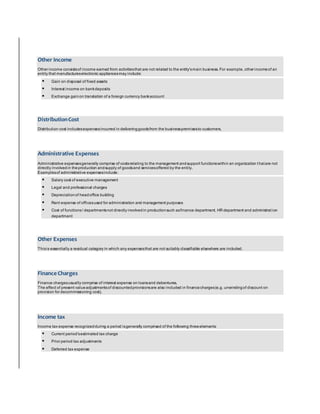
You've heard about Accounting Information Systems (AIS) and wondered what it entails. The following article will provide an overview of the job and discuss the education requirements. It also discusses the career outlook. The following section also includes information on the certifications required for this field. For success in this field, you will need to have expertise in information systems as well as accounting. Aside from that, you must be able create accurate, reliable and efficient information systems for accounting.
Doing job
The job of an accountant information system professional is varied and can include many responsibilities. Aside from overseeing the implementation of new systems, they also analyze user information needs and make recommendations. They are closely involved with the IT department and the accounting department in order to integrate commercial accounting software into an organisation's network. They act as the link between the IT department and the accounting department and are responsible to manage all aspects of accounting for smaller organizations. In addition to accounting and IT departments, they may also be responsible for other areas within an organization, such as human resources, finance, accounts receivable, and enterprise leaders.

Education Required
Business law, database theory and web programming are just a few of the core subjects that can be found in undergraduate programs in accounting or information systems. An AIS degree will give students valuable skills in problem solving, critical thinking, and ethical reasoning. Computer science professors with real-world experience are available to students. Students are also taught courses about the business environment, including the role and importance of information systems in the areas of accounting and management.
Career outlook
As technology improves, the demand for accounting information systems jobs is increasing. Computerized systems are used to process accounting numbers. They aid businesses with their audits, interpretation of commercial documents, analysis of financial statements, and economic data. Information technology, unlike traditional accounting, is increasingly being used in daily business operations. This means that there are many opportunities for both IT and accounting specialists to grow their careers. Listed below are some of the most common accounting information systems jobs and the required degree to pursue them.
Certifications
Accounting has grown from a simple profession of tax preparation, bookkeeping, and to the complicated science of accounting information technology. These professionals are skilled in technical and financial issues. They can also hold multiple roles in large companies. A variety of certifications can be obtained by accounting information specialists, such as those for auditors (certified public accountants), financial managers, business accountants, and business accountants. However, they all have one thing in common: they work to keep track of a company's finances.

Salary
Accounting Information Systems jobs pay an average of $53,822. The highest paid professionals earn more than $130,000 per year, and the lowest paid earners make less than $27,000 per year. The average annual salary for Accounting Information Systems professionals is $10,389 to $257,666. The median salary in the United States is $49,000. The highest 10% earn more than $130,000. Accounting Information Systems can earn a range of salaries depending on their experience and where they live.
FAQ
What happens to my bank statement if it is not reconciled?
You might not realize the error until the end, if you haven't reconciled your bank statement.
Then, you will need to start all over again.
How does an accountant work?
Accountants partner with clients to help them get the most out their money.
They are closely connected to professionals such as bankers, lawyers, auditors, appraisers, and auditors.
They also interact with departments within the company, such as sales and marketing.
Accounting professionals are responsible for maintaining balance in the books.
They calculate the amount of tax that must be paid and collect it.
They also prepare financial reports that reflect how the company is doing financially.
What are the steps to get started with keeping books?
You'll need to have a few basic items in order to start keeping books. These items include a notebook and pencils, calculator, staplers, envelopes, stamps and a filing drawer or desk drawer.
Statistics
- Given that over 40% of people in this career field have earned a bachelor's degree, we're listing a bachelor's degree in accounting as step one so you can be competitive in the job market. (yourfreecareertest.com)
- According to the BLS, accounting and auditing professionals reported a 2020 median annual salary of $73,560, which is nearly double that of the national average earnings for all workers.1 (rasmussen.edu)
- "Durham Technical Community College reported that the most difficult part of their job was not maintaining financial records, which accounted for 50 percent of their time. (kpmgspark.com)
- Given that over 40% of people in this career field have earned a bachelor's degree, we're listing a bachelor's degree in accounting as step one so you can be competitive in the job market. (yourfreecareertest.com)
- a little over 40% of accountants have earned a bachelor's degree. (yourfreecareertest.com)
External Links
How To
Accounting for Small Business
Accounting is an essential part of managing any business. This involves tracking income and expenses as well as preparing financial reports and tax payments. This task also requires the use of software programs, such as Quickbooks Online. You have many options when it comes to accounting for small businesses. You have to decide which method is best for you based on your specific needs. Below are the top choices.
-
Use the paper accounting system. You may prefer paper accounting if you are looking for simplicity. This method is very simple. You simply need to record transactions every day. However, if you want to make sure that your records are complete and accurate, then you might want to invest in an accounting program like QuickBooks Online.
-
Use online accounting. Using online accounting means that you can easily access your accounts at any time and anywhere. Wave Systems and Freshbooks are three of the most widely used options. These software programs allow you to manage finances, pay bills, generate reports, send invoices, and more. These software are simple to use and offer many great benefits and features. These programs are a great way to save time and cash on your accounting.
-
Use cloud accounting. Cloud accounting is another option. It allows you to store your data securely on a remote server. Cloud accounting has many advantages when compared to traditional accounting software. Cloud accounting isn't dependent on expensive software or hardware. It offers greater security as all of your data is stored remotely. It also saves you time and effort in backing up your data. Fourth, it makes it easier for you to share your files with other people.
-
Use bookkeeping software. Bookkeeping software is similar to cloud accounting, but it requires you to purchase a computer and install the software on it. After the software has been installed, you can connect to your internet account to access them whenever you like. You can also view your balances and accounts right from your computer.
-
Use spreadsheets. Spreadsheets are useful for entering financial transactions manually. You can, for example, create a spreadsheet that allows you to enter sales figures each day. You can also make changes whenever you like without needing to update the whole document.
-
Use a cash book. A cashbook records all transactions that you make. There are many different shapes and sizes of cashbooks depending on how much room you have. You have the option of using a different notebook for each month, or a single notebook that covers several months.
-
Use a check register. A check register is a tool that helps you organize receipts and payments. To transfer items to your check list, all you have to do is scan them in your scanner. Notes can be added to the items once they are scanned.
-
Use a journal. A journal is a type of logbook that keeps track of your expenses. This works best if you have a lot of recurring expenses such as rent, insurance, and utilities.
-
Use a diary. A diary is simply a journal that you write to yourself. It can be used to track your spending habits and plan your finances.